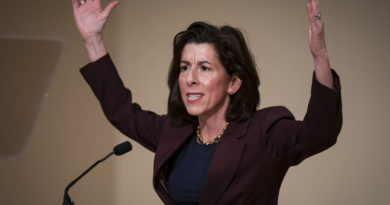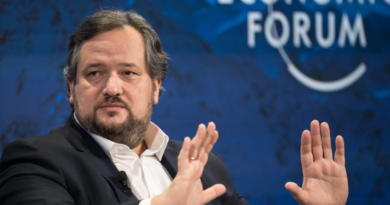How milestone birthdays can derail CEO focus—and harm company performance
In the high-stakes corporate world, CEOs are expected to keep their eyes on the prize, regardless of personal milestones. Yet, new research reveals that the periods leading up to milestone birthdays—those “9-ending ages” like 39, 49, and 59—can significantly impact how CEOs manage their companies. As they approach these ages, CEOs often engage in deep self-reflection, which can ripple out to affect their firms’ performance in surprising ways. Here’s how these “big-birthday crises” influence strategic decisions—and what CEOs can do to navigate this period effectively.
Just as the start of a new year spurs people into setting resolutions and rushing to the gym, approaching a new decade in age can prompt deep personal introspection. Psychology research shows that individuals at 9-ending ages are more likely to reassess their life direction and purpose. For example, these ages see higher rates of certain behavioral changes—like taking up physical challenges such as marathon running, or, more troublingly, exhibiting increased rates of suicide and extramarital affairs. This suggests a search for meaning as people grapple with the idea of closing one chapter and beginning another.
CEOs losing focus—with consequences
While such introspection and behavioral shifts are evident in the general population, a critical question remains: Does this phenomenon extend to people with distinguished careers, such as CEOs, whose unique traits and responsibilities might set them apart? And if so, do these reflective tendencies manifest in tangible corporate outcomes?
I recently took up these questions in a research paper, examining how 9-ending ages impact the behavior of CEOs and corporate outcomes and revealing that even corporate leaders are not immune to these milestone-induced reflections.
Data collected from a large sample of U.S. CEOs from public firms, followed over decades, indicates that CEOs may indeed be distracted by personal concerns and reflections. This distraction corresponds with measurable declines in key performance metrics, such as return on assets and market value. The research also indicates that these CEOs tend to invest less in critical long-term initiatives like R&D and capital expenditures. In fields driven by innovation and forward-thinking strategy, this pullback on investments can be particularly detrimental.
How CEOs should prepare
While the research primarily explores the impacts of 9-ending ages on CEO behavior and corporate outcomes, it also prompts practical considerations. The following strategies can help CEOs navigate these milestone periods productively:
- Acknowledging the crisis without avoiding it: CEOs who recognize the introspective tendencies tied to 9-ending ages can use this awareness to gain clarity on their personal and professional priorities. Engaging with executive coaches or mentors can help CEOs balance this self-reflection with their corporate responsibilities, ensuring they don’t lose sight of the bigger picture.
- Focusing on continuity in strategy: A proactive approach involves setting robust strategic goals well ahead of these milestone birthdays. By establishing clear, multiyear plans, CEOs can anchor themselves in long-term objectives that transcend their immediate concerns. Building a resilient framework for decision-making can help maintain focus during periods when their attention might otherwise wander.
- Leveraging the opportunity for personal growth: The very introspection that can lead to corporate disengagement also presents an opportunity for renewal. CEOs can use these periods to reassess their leadership style, personal values, and career goals. A meaningful shift in perspective could bring about positive changes, such as fostering a deeper connection with their teams or prioritizing purpose-driven initiatives that align with both their values and the firm’s mission.
Implications for boards
While the 9-ending age crisis affects CEOs personally, it also presents a challenge for boards. Knowing that a CEO may face this period of introspection, boards can plan for any potential shifts in leadership focus. Here are some actions boards might consider:
- Enhanced oversight and monitoring: Regular check-ins and performance reviews can help identify early signs of disengagement. Boards might implement temporary oversight measures during a CEO’s 9-ending age year to ensure that strategic initiatives stay on track.
- Support systems and resources: Providing CEOs with access to counseling, coaching, and other resources can help them process these introspective phases constructively. Encouraging CEOs to acknowledge these personal milestones can foster an environment of trust and support, which may ultimately benefit the company.
- Collective leadership support: During these phases, other leaders within the board and top management team can play a crucial role in supporting the CEO. By stepping up to share responsibilities, they can help maintain stability and continuity in strategic direction. This collaborative approach not only ensures resilience but also strengthens the organization’s leadership dynamics as a whole.
CEOs are not immune to the introspective effects of approaching a 9-ending age, but the implications for them extend beyond personal reflections, influencing corporate outcomes. By recognizing and planning for these periods of reflection, CEOs and boards alike can ensure that personal milestones do not derail corporate strategy.
Ultimately, the findings underscore the importance of integrating personal growth with professional responsibility, showing that even the most influential leaders face life’s turning points. Embracing these phases can offer CEOs a chance to reaffirm their commitment to their vision, aligning their newfound insights with the company’s goals.
Read more:
The opinions expressed in Fortune.com commentary pieces are solely the views of their authors and do not necessarily reflect the opinions and beliefs of Fortune.
CEO Daily: Stay on top of global business trends with the market-moving stories and analysis business leaders need to know.
Sign up here.




